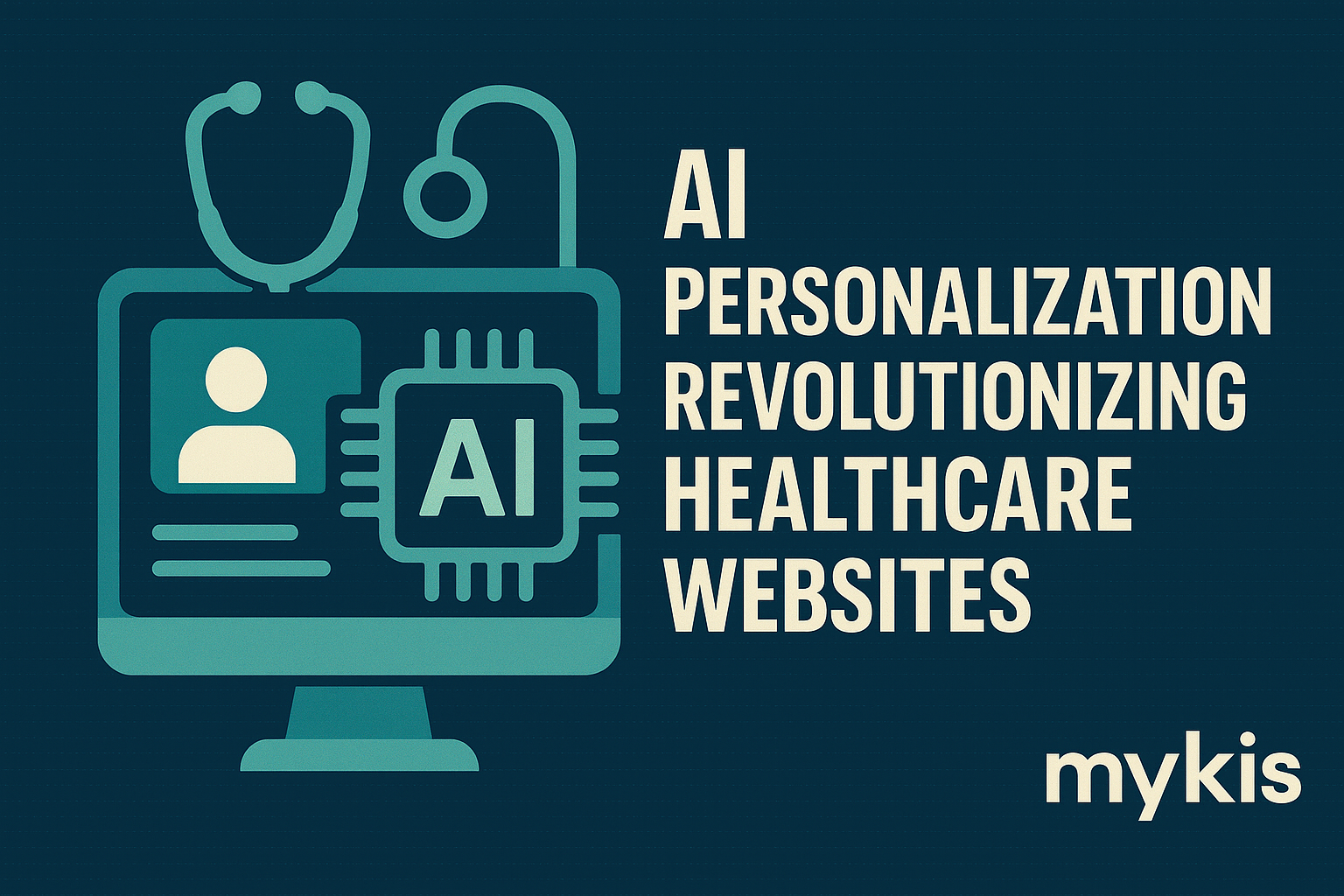Schedule a Demo
The integration of artificial intelligence into website design is no longer a futuristic concept—it's happening now, transforming how clinics and hospitals interact with patients through their digital interfaces. In healthcare, where every interaction matters and can directly impact patient care, AI-driven personalization stands to revolutionize the patient experience. Through sophisticated algorithms, healthcare websites can now offer personalized content and services tailored to each individual's needs, making the journey from information gathering to treatment seamless and highly effective.
One of the most compelling benefits of incorporating AI into healthcare website design is the capability to enhance patient engagement. By analyzing user behavior, AI can deliver content that resonates on a personal level. For instance, if a returning visitor has previously explored pages related to heart health, the website can surface relevant articles, treatment options, and even specialist information based on their interests. This level of personalization increases the likelihood that patients will find the information relevant and actionable, fostering a deeper connection and trust between patients and healthcare providers.
The complexities of a typical healthcare website can often overwhelm users. Machine learning algorithms can help by continuously learning from user interactions, adjusting navigation paths to make the website more intuitive over time. For healthcare professionals, this means patients can more easily find the information or services they need, improving satisfaction and reducing frustration. This dynamic adjustment based on user feedback not only enhances user experience but also reduces the resource strain on customer service departments.
Custom software development in healthcare is stepping into a new era with the integration of AI to create personalized patient portals. These portals become extensions of care by learning from patient behavior and data, offering tailored health management tools, appointment scheduling, and communication channels. I've worked with clients who were initially skeptical but were eventually amazed at how these AI-driven portals transformed their patient engagement strategies and streamlined operations. The value here is immeasurable—AI not only personalizes the patient experience but also aids healthcare providers in delivering more effective, individual-focused care.
Navigating the sensitive realm of patient data requires an ironclad approach to privacy and compliance, especially when integrating AI systems. According to research from the Office of the National Coordinator for Health IT, maintaining trust through robust data security is paramount. When designing healthcare websites with AI, developers must incorporate state-of-the-art encryption and anonymization techniques to protect patient information. Balancing personalization with privacy is key, ensuring that patients feel secure when using AI-enhanced platforms, which in turn strengthens their trust in the healthcare provider's digital offerings.
Consider a recent project where we integrated AI into a hospital's patient portal. Before our intervention, users experienced a generic interface with limited functionality. Post-AI integration, the portal could predict user needs, offering appointments with specialists relevant to the patient's medical history and displaying personalized health tips. The impact was significant; patient satisfaction ratings increased by 30%, and there was a noticeable reduction in call volume to the support center. This case is a testament to how AI-driven customization can lead to measurable improvements in patient care.
Predictive analytics, powered by AI, takes personalization to the next level in healthcare websites. By leveraging big data, these systems can forecast potential health risks and suggest preventive measures to individual users. Patients visiting a hospital or clinic website may receive notifications or recommendations for screenings based on their demographic information or medical history, potentially preventing the escalation of conditions. The ability to predict and act proactively on patient health needs underscores the profound impact AI can have on healthcare outcomes.
Integrating AI into healthcare websites is not without its challenges. One major hurdle is the initial setup and training of algorithms to understand and address the diverse needs of patients. Moreover, keeping the AI systems updated with the latest medical research and guidelines adds an extra layer of complexity. However, the potential for enhanced patient care and engagement outweighs these challenges, making it a worthwhile investment for healthcare institutions seeking to stay at the forefront of technological advancement.
AI's impact extends beyond navigation and personalization into the realm of content marketing. By analyzing user data, AI can tailor educational content, making it more relevant to each visitor. For healthcare institutions, this means delivering health tips, treatment options, and preventive care strategies in a way that speaks directly to the individual's needs and interests. In a world where health literacy can be a key determinant of patient outcomes, this targeted approach to content can lead to more informed and health-conscious patient populations.
As AI continues to evolve, so too will its applications in healthcare website design. The future promises more advanced forms of personalization, potentially integrating with wearable technology for real-time health updates, and using virtual reality for patient education and therapeutic purposes. Although the full scope of these possibilities is yet to be seen, the ongoing development in AI assures healthcare providers that they will have ever-improving tools at their disposal to enhance patient care through personalized digital experiences.
While the future of AI in healthcare is bright, it's important to maintain a balanced perspective. AI can significantly enhance personalization, but it's not a cure-all. There are ethical considerations around data use and the potential for bias in algorithms. Additionally, not all patients may have equal access to the technology necessary to benefit from these advancements. Healthcare professionals should therefore approach AI integration with eyes wide open, appreciating its benefits but also acknowledging its limitations. Based on available research, while AI-driven personalization holds much promise, individual outcomes may vary, and it must be used alongside human judgment for the best results.
